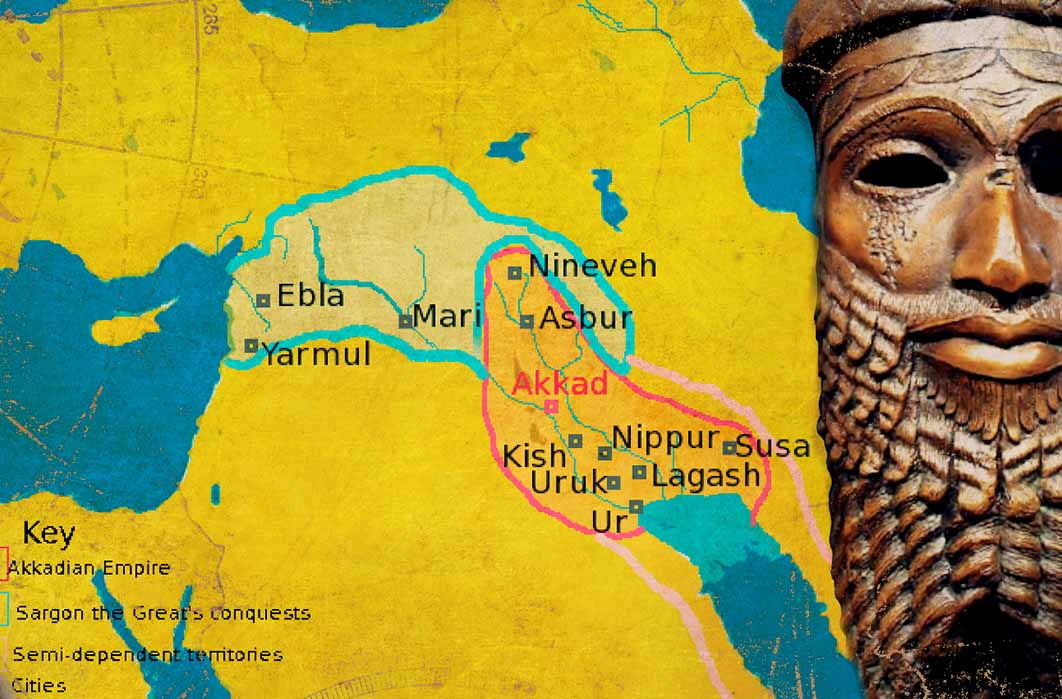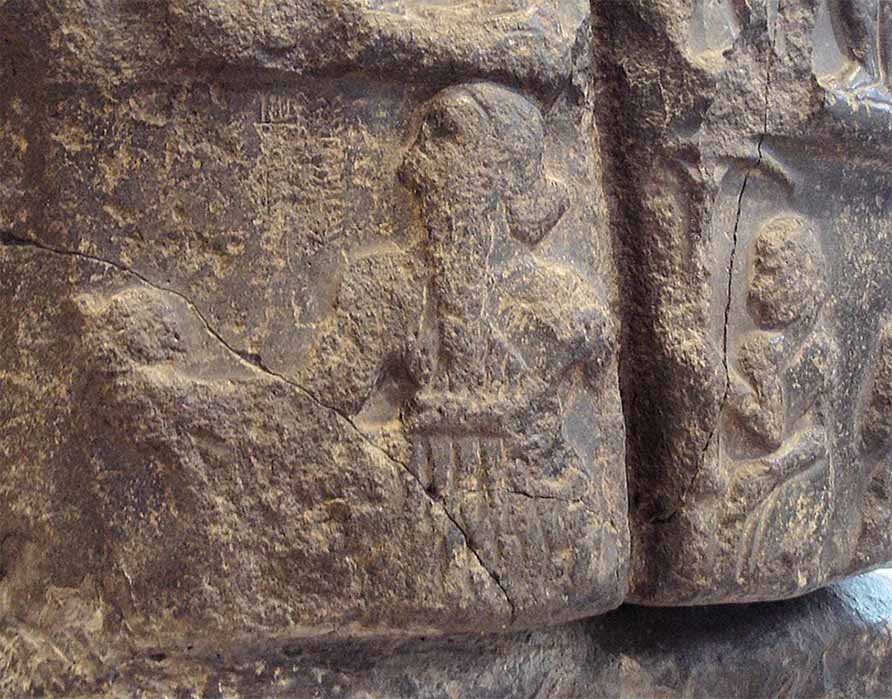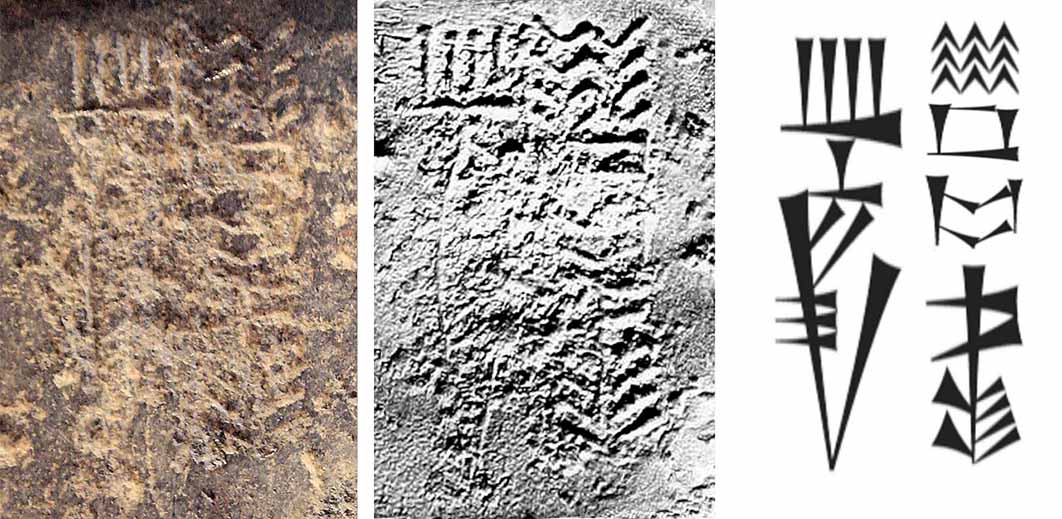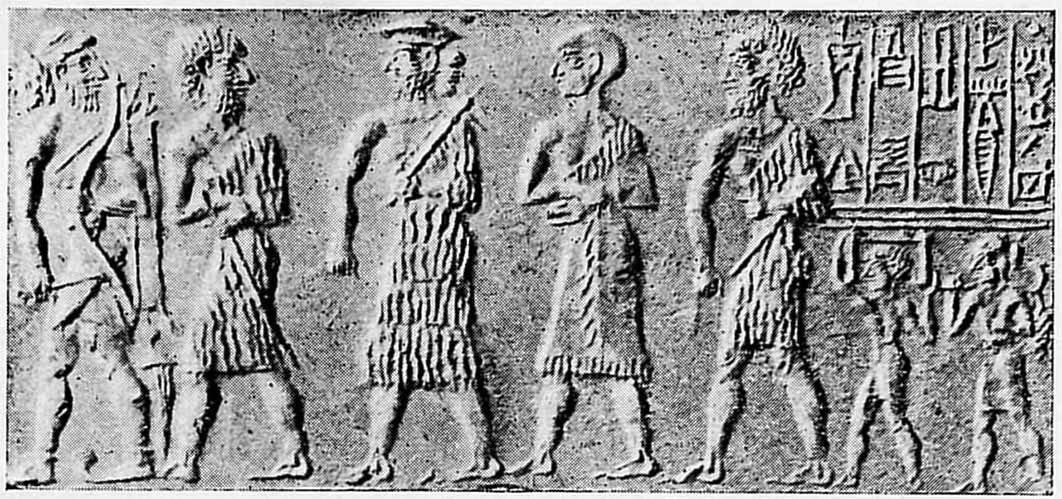
Res Gestae Sargonis: Sargon The Great King Of Akkad
The Akkadian Empire, founded by Sargon the Great, was the very first empire the world had seen, established in ancient Mesopotamia in about 2370 BC. This empire was remembered as having been exceptionally great and powerful, with great epic tales about those mighty kings told and retold throughout the ages. The dominium and rule of the Akkadian emperors reached to the furthest corners of the ancient Middle East.

Sargon on his victory stele, followed by an attendant holding a royal umbrella. The name of Sargon in cuneiform ("King Sargon") appears faintly in front of his face. Louvre Museum (CC BY-SA 2.0)
Sargon the Great, belonged to an eastern Semitic people called the Akkadians who had been living among the Sumerians perhaps since the earliest times. When the Akkadians took control of the land of the two rivers and conquered the entire known world (and beyond) to the north, south, east and west, a new era in world history had arrived - a heroic era characterised by true greatness and glory, equal to that which one would associate with the early Greeks. Although the Akkadians did not have a Homer, they did in fact have poets, who preserved the epic deeds of those great and mighty emperors for later generations.

"King Sargon" (Šar-ru-gi lugal) on the Victory stele of Sargon (CC BY-SA 2.0)
An Outstanding Epic Epoch
What is quite fascinating about the great Akkadian emperors is that they were commemorated as the greatest of all those who ever ruled over ancient Mesopotamia. The scholar, Gwendolyn Leick, writes: “Akkad was known as the centre of the most successful empire ever, which reached to the corners of the world.” Another scholar, Piotr Michalowski, for his part, writes: “The gravity of the traditions concerning ‘il primo impure universale’ has been particularly impressive, as Akkad and its fate acquired a unique place in Mesopotamian ideology and tradition.”
Over the centuries, the narratives of the great and mighty deeds of the Akkadian emperors served as a timeless ideal for later generations of kings. Various kings from the Old Assyrian and Neo-Assyrian Periods even bore the names of the Akkadian emperors. Unfortunately, only a few of the original inscriptions of these emperors survived the destruction of the ages. Fortunately, however, the scribes of the Old Babylonian Period a few centuries later, copied those inscriptions, thereby having preserved many of them. In notes to the copied texts, called colophons, the scribes even mentioned the Old Akkadian Period monuments they were copied from.

Cylinder seal of the scribe Kalki, showing Prince Ubil-Eshtar, probable brother of Sargon, with dignitaries Inscription: "Ūbil-Aštar, brother of the king: KAL-KI the scribe, (is) his servant. (Public Domain)





